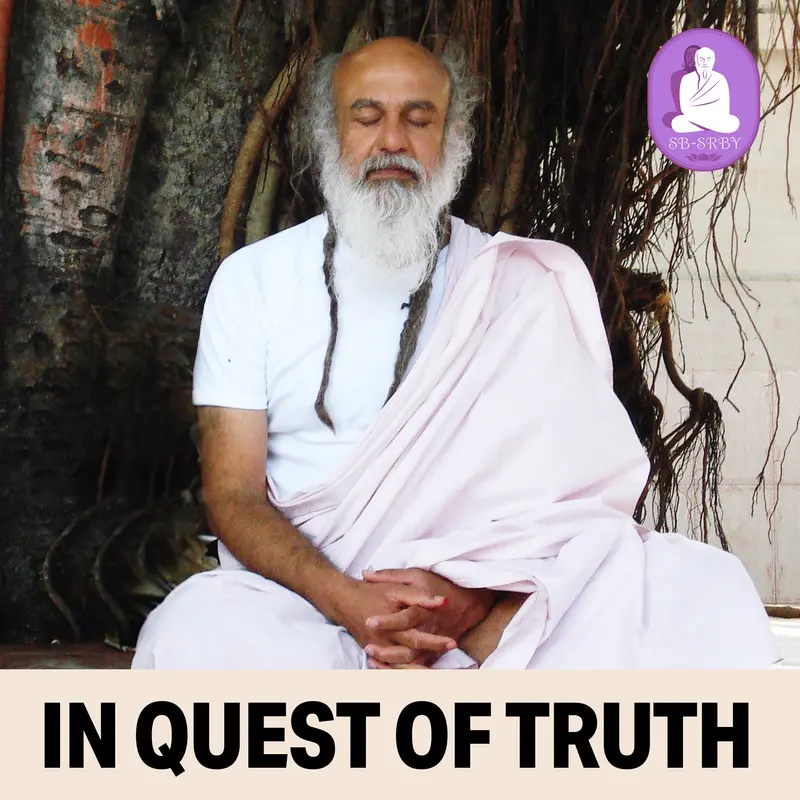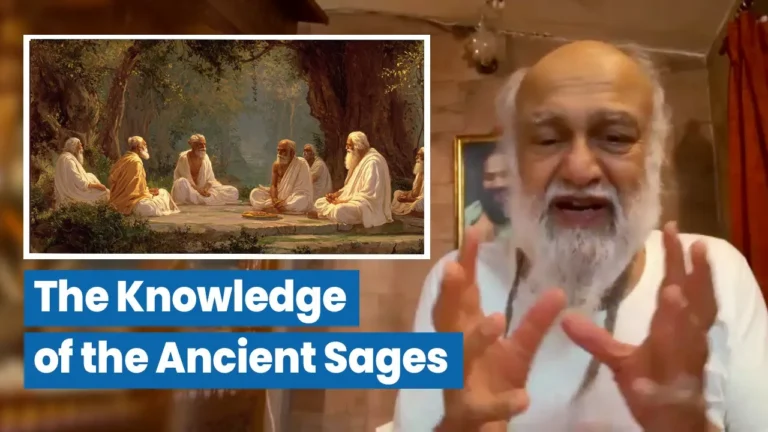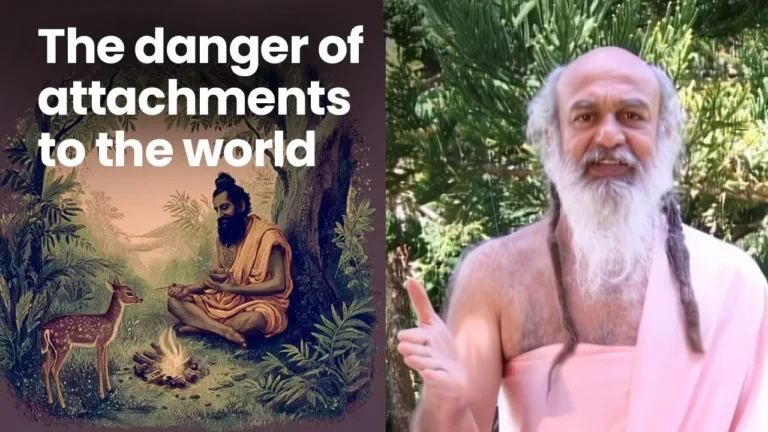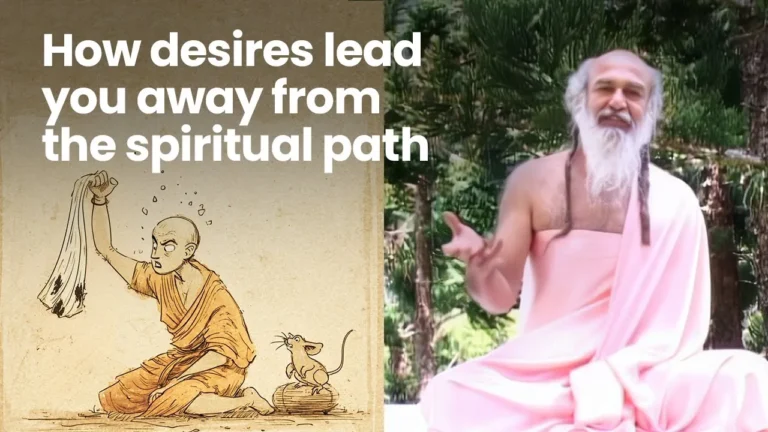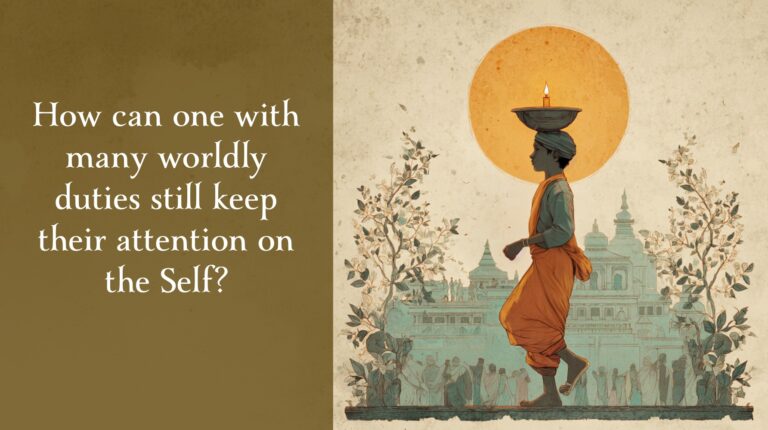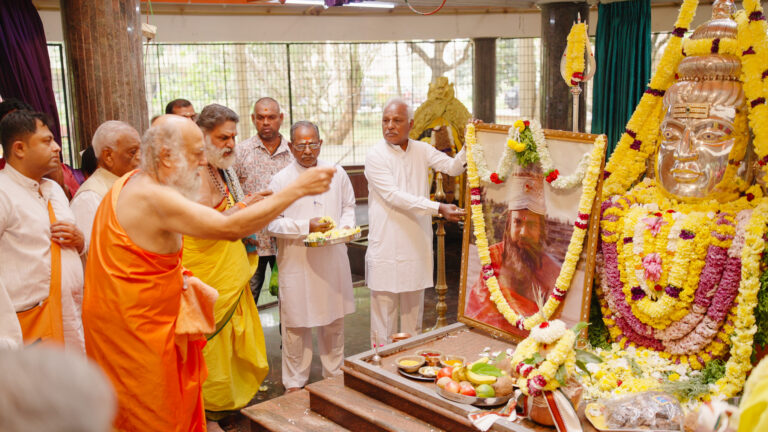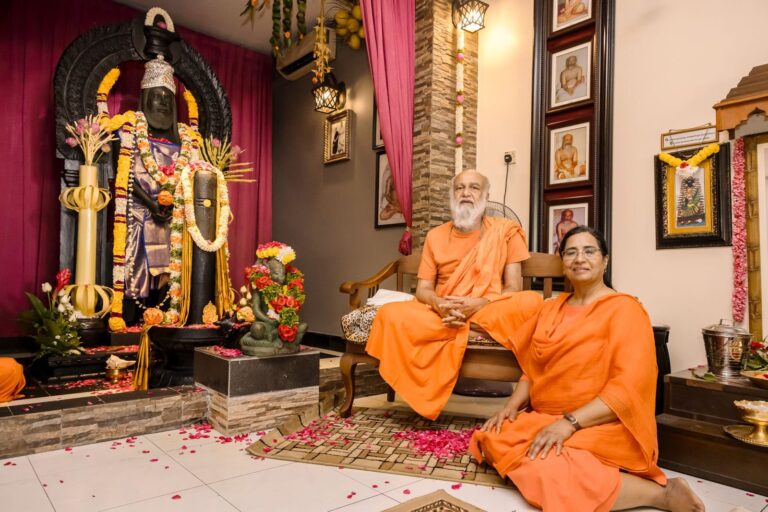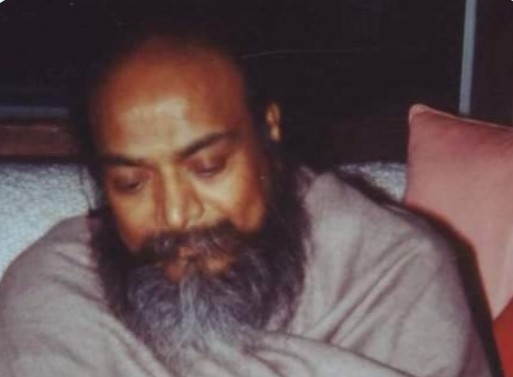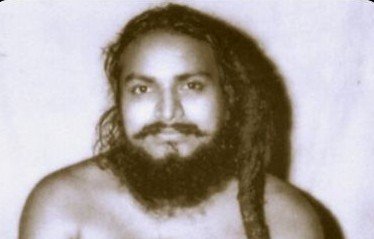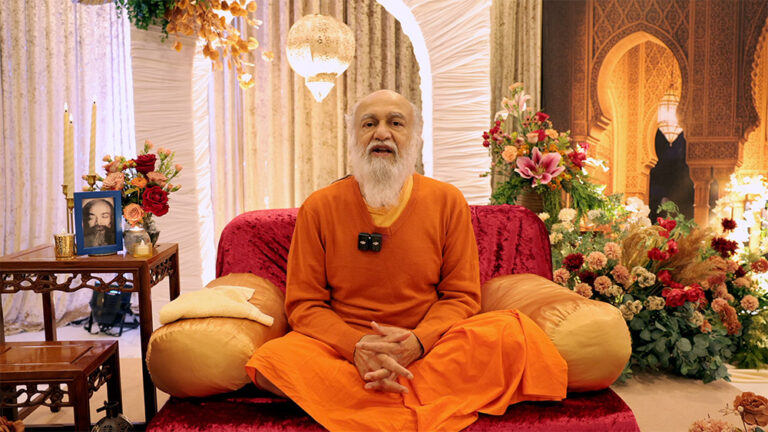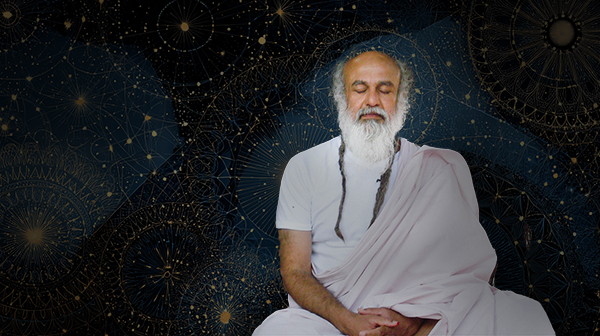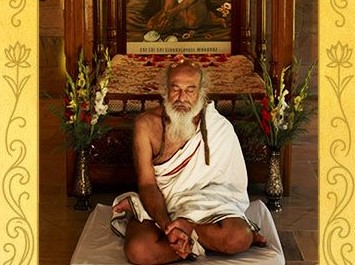A series of Q&As filmed at the Shivabalayogi Devarayasamudram Ashram in South India during a meditation retreat with Shri Babaji over the course of 10 days
0:00 Intro
0:11 What determines the quality of our meditation? Is it the Self that determines this?
1:23 How did Babaji know when to change direction during Tapas?
2:59 What is the significance of sitting in different directions during Tapas?
4:33 During meditation how do we know we are watching the thoughts and imprints and not re-engaging with them?
5:10 Is emotional engagement different from mental engagement?
5:43 Is it ok to tell ourselves to focus during meditation when the attention drifts?
6:56 Could Babaji talk about the mantra Babaji chants during the morning Abhishekam?
8:00 Could Babaji give a brief history of the Sage Markandeya?
9:37 Could Babaji talk about the time when Babaji went to the Markandeya cave in Mysore to sit for meditation?
10:56 When someone goes into Tapas is there a desire to do Tapas or does it happen automatically?
11:17 Could Babaji tell the story of Kanakadasa, the cowherd boy?
17:00 How did Babaji know as a young boy that vairagya would be so important with the Guru you would seek to find?
19:35 What is it about ‘watching’ that allows you to purify the mind?
21:37 Did Swamiji know when it was time to give up the body?
22:25 Is it true that there remains a special power that remains with the Yogi’s body after it is dropped?
24:09 So when we go to a spiritual place and feel a supercharged atmosphere, is that due to our faith?
25:08 Why does it happen that we have a spiritual experience when there is no pre-existing faith?
29:41 How much desire for Self Realisation is necessary?
34:14 How can one be focused on a task and also have detachment?
35:30 If our attention is on the task in the present, how can that become attention on the Divine?
37:45 People are expected to multitask when working at companies, how can one manage this?
38:34 Can Karma Yoga be like Bhakti Yoga?
39:59 Could Babaji explain how, when you remember the Divine, all your sins will be washed away
41:15 So if your mind is agitated, by thinking of the Divinity, that can all disappear?
41:52 Does that become a practice?
42:07 Does gratitude increase the ability to connect with the Divinity?
Discourse: In Quest of Truth – DSM Meditation Retreat
Day 5 Morning Q&A
Recorded: February 2024
Start of Questions and Answers
Question: What determines the quality of the meditation when we sit down?
Babaji Maharaj: Your effort, your effort determines, and your determination, disciplined approach; all these determines. So, you just have to do your job. The rest of the things happen as an automatic divine activity. Why I am not talking that the Self determines or who determines, because an imagination might occur whether the Self thinks and then determines, “Let this happen like that.” Not like that. Your job is simply to watch in between eyebrows. Then whatever has to happen, it stirs and then they all will dissolve. Sometimes nothing might come, very quickly the mind might settle down peacefully. This is the mind’s nature, so it will just do on its own. As we have told, when you sit for meditation, just bother to focus and do not bother for anything else.
Question: During tapas, Babaji sat for periods of time in different directions. How did Babaji know when to change direction during the tapas?
Babaji Maharaj: Usually a manifestation of that direction’s angel would happen. Then they would not talk anything else, but would give a mantra for the next direction. So that was the signal, that direction is done. Then I used to change my direction for sitting. Just one time used to chant that mantra, then silently go into samadhi. So, that was how it was happening. Like one time if I remember, I have told in ‘His Master’s Grace’, the deity or the angel appeared, but did not utter any mantra, simply disappeared. Then after that, Swamiji appeared; every time He used to ask, “Did you get the mantra?” Then I used to tell, “Yes, I got the mantra.” Then Swamiji used to tell, “Yes, now you have completed this direction, now you can change the direction.” Then I used to. So, when I told him, “It did not utter any mantra; it simply disappeared.” Then Swamiji told, “You have to continue for some more time in this direction until the deity appears and gives you a mantra for the next direction.” So that was how it was happening.
Question: What is the significance of sitting in different directions during tapas?
Babaji Maharaj: Simply, the Guru told, that’s why we followed. At the time, or ever, it didn’t even occur for me to ask for anything. A couple of things, a personal opinion. When you do all the directions, means you gradually overcome the effect of different directions and one space exists as the mind goes on getting purified; neither east nor west nor south or any such thing. Just like if you are in the center of the space, which way? This doesn’t happen; nothing is there. So, like that, you have overcome mentally, in the consciousness, of all direction effects of the imaginations. That was one significance.
It was in our Guru parampara. My Guru was also asked by the Jangama Sage and He did it. Probably the same thing happened to me also. Either my own resolutions on hearing my Guru’s story I would have resolved “It might happen like this”, unknown to me, then the same thing I had to see and undergo; this is one thing. So, other than this, let the Guru’s message spread in all four directions. This is the only significance.
Question: During meditation how do we know we are watching the thoughts and imprints and not re-engaging with them?
Babaji Maharaj: When you are watching, it cannot be called as engaging with them. If you’re engaging with them means you have to deal with it either by talking, either you want that to disappear, so then you get involved into further imagination. Here, “Just watch” means you don’t have to engage with them. If you simply become quiet, that will dissolve, that is the technical matter; that’s how it happens.
Question: Is emotional engagement different from mental engagement?
Babaji Maharaj: If it comes on its own, let it happen. Then also don’t further get engaged, “Why did this happen?” Like that. That’s how the mind has a tendency. If it happened, “O God, so much of time wasted, why did this happen?” No need to know. All reasoning must stop. Then only the mind subsides totally. So, that is what is important.
Question: Is it okay to tell ourselves to focus during meditation when the attention drifts?
Babaji Maharaj: One time doing it is no problem. Just like a hundred thoughts are troubling, you just try to take the help of one stronger thought which will command all hundred thoughts to become quiet. So that type you can tell yourself, “Enough, stop these things! No need to bother about what it is. No reasoning has any effect; it’s all illusion.” That’s why illusion theory is also taught. Just to make you understand there is nothing that exists of such sorts of such thoughts or vision experiences. So, there is no need to know why and what and how. We are wasting our energy and time. As soon as possible if we become quiet, that is beneficial because we don’t know when the body will go away. Like that, you develop detachment. Slowly get detached and without bothering, ignore in every way.
Question: Could Babaji talk about the mantra Babaji chants during the morning abhishekam?
Babaji Maharaj: It’s said to be composed by Sage Markandeya. It talks in praise of Lord Shiva of all the things. And then, “Namami shirasa devam” means nakamastak, “I bow with my head to You, my Lord. Kim no mrutyu karishyati, “Please make that no death, I don’t have to face that death ever.” So, that is the thing. That means that you are praying for liberation. When liberation happens, there is no more birth or death. So that’s what He prayed. That is the basic idea. The rest is all in praise of Lord Shiva; Parvati Vallabham Devam Rajataachala Vaasinam, Gauri Patim, Pashupatim Parvati Praana Naayakam.
Question: Could Babaji give a brief history of the Sage Markandeya?
Babaji Maharaj: When Markandeya was born, something happened by the Lord’s grace. His parents were asked, “Do you want a child who is Self-realized, who is godly, but he will live very short time or do you want a useless crooked child who can live a hundred years? Which one do you prefer?” Then the parents tell, “We want a child who is bright, Self-realized, God-fearing. But even if it has to die early, is no problem. It will live a beautiful life and then die, that’s what.” But then Markandeya is told that “Your life will only be sixteen years.” So then, He started worshipping Lord Shiva. He only composed the Mrutyunjaya mantra also.
Trayambakam yajamahe sugandim pushtivardanam, urva rukameva bandhanaat, mrutyor mukshir mamrutaat
– and this stotram also that I chant. Since childhood we have been chanting. The story tells that when Death God came, Markandeya just hugged the Shivalingam. And there, Lord Shiva manifested and protected Him and gave Him more age, more life for Him. Something like that, the story comes.
Question: Could Babaji talk about the time when Babaji went to the Markandeya cave in Mysuru to sit for meditation?
Babaji Maharaj: Yeah, after Swamiji dropping His body, from Adivarapupeta, I went there. A few times I had been there with Swamiji. Swamiji used to take all devotees and sit there telling “Sage Markandeya had done tapas here”, and He also worshipped Goddess Chamundeshwari. So that was how then that time also I went there. So, when three days I was in there, that’s when I got Swamiji’s vision telling me that “Twenty years of your selfless service has given you fruits of seven years tapas. If you do only five years more, you will get the nirvikalpa samadhi.” The mind will become totally merged and become quiet, that’s the meaning. At the time also I mentally probably didn’t think that I’d go. I said, “I would like to serve and sing the glory of You.” He told “No, the time has come.” Muhurt, He used to talk. “The right moment is there, so you will be made to sit for tapas, and you will be forced to do that. The circumstances will get created in such a way.” So, that experience happened there. That is the Markandeya cave.
Question: When someone goes into tapas, is there a desire to do tapas or does it happen automatically?
Babaji Maharaj: Yeah, just go like that one. I never thought at that time “I have to do.” When I thought “I have to do”, it didn’t happen. When I didn’t think “It has to happen”, it happened. Like that.
Question: Could Babaji tell the story of Kanakadasa, the cowherd boy?
Babaji Maharaj: So, in the bhakti marga, it is all the faith that matters. Your innocence, the purified mind with total faith. Kanakadasa was a great saint who lived perhaps about five hundred years back. At the time of the Vijayanagara Empire, two great saints were there, Purandaradasa and Kanakadasa; they both were great musicians also. For Kanakadasa, He was a cowherd boy who used to take cows and buffaloes so that they could eat grass. One time, when He was in the forest, He gets attracted to a festival worship that the priests were doing in a nearby village. He goes there and He keeps watching their chants and everything. He got very much attracted. He was watching them. Then after the puja, He goes and requests, “Please teach me also so that I can worship God and I also want to see God.” So, they make fun of Him. “You are only a cowherd boy taking buffaloes and cows all the time. What can you understand about these mantras and chants, idiot? You do one thing. Go under the tree, sit there, close the eyes and just repeat “Buffalo, Buffalo.”” In Kannada language, the state language of this Karnataka, ‘kona’ is the word used for buffalo. So, He went on repeating with total faith. Innocently, He considered that priest to be a Guru. Whereas that priest misbehaved with a crookedness, this boy developed such faith in that priest as a Guru and went and sat and went on repeating “Kona, kona, kona”. So, in the story, it is said that Lord Yama, the Death God appeared before Him and initiated Him into the mantra of Keshava, Lord Vishnu’s name and taught Him meditation. Then He was guided to go to Vyaasa Theerta, another Self-realized Master, by His Guru, where He learned all the things and became Self-realized.
So, through devotion He had become Self-realized, means everywhere, every time it was only God for Him; Vishnu, Krishna. For this, there is another example. When He was in the abode of the Guru, Vyaasa Theerta, because He was a cowherd boy, others who were brahmins or kshatriyas belonging to higher caste, they looked down on this boy. They always used to make fun of Him. “This boy has been admitted by the Guru. Nonsense. How can he sit away in the midst of us? We belong to a high-class society. Only we are eligible to learn these mantras, etc.” So, the Guru wanted to teach them a lesson. So, one day He gave a banana to each student’s hands and told that “You all have to go and eat this banana where nobody will be watching you. Then, come back as quickly as possible. The mandate is that before sunset you all must be here to report.” So, they all came back within half an hour, one hour, like that. It was so easy. One said, “I went behind the doors, hid myself, and nobody was watching, I ate the banana.” Another said, “I ate mine behind the bushes. I went behind the mountain, I ate like that.” So, for a long time Kanakadasa didn’t come, He was not coming. Everybody was murmuring, “This idiot could not do even this small task that the Master gave, to eat the banana where nobody would be watching him. You see, He couldn’t do that one. He must be going round, round, round thinking like that.”
Finally, after a long time, before sunset, He just comes back, and in His hand, the banana is there. He keeps the banana at the feet of the Master and apologizes that “I failed. I could not eat. Because wherever I went, I tried everywhere, I hid myself behind the door, behind the bushes, behind the mountain, I tried everywhere. But, at all times, Lord Krishna was watching me. So, how could I escape His eyes?” So, such was His great devotion. All the time He was immersed in the Divine’s memory and that meditation. So, that’s why He just saw only Lord Krishna, God everywhere. So, that is the height of bhakti. Then the Guru scolds all other students, “See, that’s what He has learned. You all also listen that God is omnipotent, omnipresent everywhere. But when it comes to practice, you forget. You think that you are hiding behind the bushes and nobody was watching. Divine watches everywhere”, He says. This story also comes in it. So, in childhood, we used to listen from our school teachers, primary school teacher. So, these things had such a mesmerizing effect on our childhood minds and the bhakti marga, faith. These things came very naturally for us; our minds picked up.
Question: How did Babaji know as a young boy that vairagya would be so important with the Guru You would seek to find?
Babaji Maharaj: Particularly by reading Adi Shankaracharya explaining, you need to have a detachment to the illusion, this world, because it is impermanent. And to the Ultimate Truth, you need to have bhakti and that knowledge of what it is. So, like that, that also had such a mesmerizing effect. When we read the book about Guru and Guru’s greatness. These types of books all we have read. It used to be there in our home, small, small books. The Guru’s stories, how the Guru protects, how the Guru teaches, and all such things. So, that’s how we developed. In our culture it was very common to consider Guru as equivalent to God. So, it is not new to us. That’s when I remember, more than ten years ago, the first time when I wrote the commentary on Guru Gita, I had written in the preface, I think, introduction, the first time I heard about Guru was from my mother’s mouth. She told, “Great sages have told “Even if God gets annoyed with you, the Guru can protect you. But if you annoy the Guru, no God can protect you.”” That’s the greatness of Guru, that’s how we heard.
So, somebody from America wrote, “How can you tell this one? How can the Guru be so great? In our culture, we don’t consider it. God must be the greatest one. How can the Guru be? Guru can lead you to God only, but He cannot become greater than that.” Then I wrote to him, “You see, God might be greater than the Guru. But for me, when the Guru tells “This is God”, that Guru becomes greater.” That’s why I explained how Kabir Das also has sung “If Guru and Govinda (God) both come and stand in front of me, to whom should I prostrate first? First, mind is a little bit confused, then it gets clear. My Guru let me prostrate to you, my Lord because it is You who told me about Govinda, God.”
Question: What is it about ‘watching’ that allows you to purify the mind?
Babaji Maharaj: When you are watching, you are not thinking, actually. So that’s why you have to achieve that watching. Mind has both aspects; it can watch, it can think, it is creative. So, if one, you totally focus on that one, the other is given up by the mind. So, repeatedly, we talk of watching, watching, watching, watching, watch, watch, watch. So, you just do that, watch. That means, when you are watching, you are not supposed to do anything. That is the command my Guru used to tell. “Every day when I initiate people, I give it as a command, “Just watch”. If only seekers who get initiated consider “This is the Master’s command, all I have to do is watch and not do anything else”, then the samadhi can come like this” [clicks fingers], He used to tell. That’s what is the watching technology we try to teach.
Once it penetrates the inner layers of your mind, mind understands, “It is me who is not watching, who is thinking, I need to watch.” Then watch. Thought comes, watch. Thought comes, watch. Vision comes, watch. You will see that they are all disappearing, disappearing, and you are watching. You can use the eyeballs which are the strongest of all the sensory organs. If you strongly watch, it can withdraw and withhold the mind also there; the mind also will be there. You all strongly watch me when I am talking like this, then you will see that your mind also is here; it won’t go out of the doors, it will be here. So that is the technical effect of watching and the mind.
Question: Did Swamiji know when it was time to give up the body?
Babaji Maharaj: Yogis don’t choose, actually. These things are myths. Once we have done tapas and merger happens, we have not adorned any body at all to give up the body. Just like you have gone into a deep sleep and simply the body falls. Like in the deep sleep, you don’t have any imagination that you have a body and that needs to be dropped. So that’s how it happens. Just like that, any moment, any day it simply happens and the yogi is quiet because no desire; He is in videha mukti, He gets into that.
Question: Is it true that there remains a special power that remains with the yogi’s body after it is dropped?
Babaji Maharaj: See, these are traditional beliefs. The Guru, once He merges with the Ultimate Truth, simply is all pervaded. Sitting here also, if you have faith that Swamiji is here, He is here. He can manifest here, He can bless here, grace upon here. Simply, traditionally, of course we try to give a special respect where His body was actually placed, but He is everywhere. That’s the traditional belief of people. Usually, a yogi’s body is buried, given samadhi so that people can worship and go there, pay respects, have reverence that the Master is there, His vibrations are always there, He is there. So, the more that you develop such a belief and faith, the things will appear to you in the same way. So that is the significance; you have to have faith. For those who may not have faith, even if His body is there, it may not appear at all, but when they have faith, it can appear anywhere. Like a while ago I was telling Kanakadasa’s stories. He repeated the name of ‘buffalo’, He didn’t even imagine about any God at all. But his imagination was, “That’s my Guru, and the Guru has told this mantra. If I do this mantra, God will definitely come.” So that faith is what works actually.
Question: So, when we go to a spiritual place and feel a supercharged atmosphere, is that due to our faith?
Babaji Maharaj: Yeah, these pilgrimage centers are built, any town connected to the saint… That’s how common people, to generate that faith, it requires some symbolizing factor. Everybody will not be of a high quality devotional, that they can try to see God anywhere. For such people, these pilgrimage centers are very helpful; that is necessary. That charge will be there, manifested charges will be there, but one has to go with the faith again. Millions might go, but if they don’t have that faith, if they go out of curiosity, they will simply get to see that and come back. Otherwise, if they have faith, shraddha, then they will get it.
Question: Why does it happen that we have a spiritual experience when there is no pre-existing faith?
Babaji Maharaj: Two things. I agree you might have had such an experience, and I appreciate it. But the faith that you had before going, unknown to you with a thought, one small thought, that you are going to that place where Lord Venkateshwara is there, Tirupati. Anywhere unknown to you, that would have generated that thing. This is also a significant thing when it happens. But what I am repeatedly trying to emphasize and tell, when that Divine is everywhere, when you charge yourself with that devotion and faith, you would be able to experience that Divine’s presence anywhere. It will definitely be possible. However, I agree with all of you, that a special pilgrimage center will have some special charges, but it is not possible for the entire humanity and people belonging to all religions to go to one place only. Wherever they have belief, they go. Just for example, a devoted Hindu or a devoted Christian, they will go to their places of worship, and they can be getting such an experience. So, this is what makes a difference, actually.
Now, see, Shirdi or Tirupati or anywhere, though it is an idol placed in Tirupati and Sai Baba after He dropped His body, His samadhi would have been built, whereas in Mantralaya they tell that He (Sri Raghavendra Swamy) is still alive inside that samadhi since three hundred and fifty years, He is there in samadhi; He will be there for another three or four hundred years. But that generates such faith and people have their own experiences. As Narasimha tells, he had an experience in Tirupati, somebody else might have an experience in Mantralaya. We all worshiped since childhood, we were brought up. Because Raghavendra Swami, Shirdi Sai Baba, they were all very popular in South India, particularly. Regularly, I used to go on Thursdays to both Raghavendra Swami and Shirdi Sai Baba temples, and that gave enormous confidence and faith, such visions also. He came in my visions, “You go to Raghavendra Swami temple, you will get to know about your Guru.” Straight away, I walked and I sat and I was listening to Bhagavatham, Lord Krishna’s story, then that man came who was Swamiji’s devotee and he asked me, “Have you fought with the parents, have you run away?” That was the question that occurred to him, because I was sixteen-year-old, the rest were all seventy and above that only. Means in the society there is a wrong notion that you should go towards God only after retirement, till then you are supposed to enjoy the world; that’s what people think. Nobody will expect a sixteen-year-old boy would sit and would listen to God’s story like that one, what I was listening. I told him, “No, no, nothing has happened. I am alright. I have not fought with anybody, but this experience happened, I am looking for Shivabalayogi.” He said “Shivabalayogi is my Guru. He has an ashram in Bangalore. Come with me. I will give you His biography.” So he took me.
So, all these things, it’s very difficult to explain exactly why, how, where it happened, what were my resolutions, previous lives experiences, or something that came which led me towards my Guru. So that type of faith. We had developed a lot of faith in Sri Raghavendra Swamy also, and Shirdi Sai Baba also always. It was there, definitely. So, finally, it’s your faith which you must not give up; you must have. That’s when you will experience anywhere, either at Tirupati, or Jerusalem, or Mecca, Medina, anywhere, it is possible for you. That’s what you have to understand finally.
Question: How much desire for Self-realization is necessary?
Babaji Maharaj: Precisely to understand, one point I will tell, all that matters is your mental attention. In the twenty-four hours, to which side your mind gets inclined to remember. You become so restless, that twenty-four hours you are unable to forget the impermanence of the world and you want Self-realization. In twenty-four hours, maybe it is twelve hours that you are able to remember that you need Self-realization, a permanent entity, the body is going to die, you realize. Like that, gradual preoccupation. That is what is attachment and detachment. If you have attachment mentally, you are unable to forget the world. Like Ramakrishna said, the servant lady comes to mop your home or clean up your garden, but she will always be remembering her child at home. Same way, suppose you are all here for a retreat of ten days, but if you have some problems or some attachments, some deep things, these things; your mind might be remembering home or a family or a friend or any such thing, not all the time will you be able to be here mentally. Though you are sitting, you are trying to meditate, you are trying to talk with me, but your mind might be again and again running. It comes and it runs again, it comes, and it runs again.
So, these types of things happen; to anybody it can happen. That is what is attachment and detachment. If gradually an understanding comes, “The world is impermanent, this is what I want.” “This juice is what I want”, then my attention will not go to your questions. I will be drinking here, that’s all. [laughs] Otherwise, my attention will be to your question. Even after drinking, I wouldn’t have drunk anything at all, mentally. So that is the difference of attachment and detachment, what we are trying to tell; depending on that mentally, you will experience the remembrance so much. Many stories are all there, God trying to teach even Narada also. In Bhaktavijayam these stories all come.
There was a farmer whom Lord Krishna as His greatest devotee to Sage Narada. Sage Narada wondered “How can that be? I always remember Narayana, Narayana. O, God, you are telling that this farmer is your greatest devotee.” Then Lord Krishna takes Sage Narada to where the farmer is. The farmer is tending his field. Lord Krishna then asks Sage Narada “Please get me a glass of water. Please see that not a drop must fall on the ground. You must be very careful.” So, Sage goes, after a long time He comes back, but at all times when the farmer was going around with his plough, he was remembering, “Krishna, Krishna, Krishna, Krishna, Krishna”, and automatically he was doing the work. When Narada comes with water, “Krishna, see, I took care so much and not a drop have I dropped.” “That’s no problem, Narada, but how many times could you remember my name when you were bringing this water?” “Come on, don’t tell me, You gave me such a big task that one drop should not fall, how could I remember Your name? All my attention was here that it should not fall down.” “You see this farmer. He is doing his job in the agriculture land, but his mind is remembering Krishna, Krishna, Krishna, Krishna.” That is the attachment and detachment He teaches, the Lord. So, that is the practice in the mind. Slowly, the consciousness attention shifts. So, then mechanically one day you can be in the world, you can earn your livelihood, you can eat and sit, but mentally, you’ll be totally engaged to this. That’s what the detachment is known as.
Question: How can one be focused on a task and also have detachment?
Babaji Maharaj: See, when you are focused on one task, you are unable to do another task. Your attention will not go. Jokingly, shall I tell one example? Please don’t mind. You must forgive me. Me and Ambaji, we are here. You will be coming and you will be pressing my leg. Suddenly, Ambaji tells, “Jordi, you come here.” You’ll tell, “Baba, I have to go, Ambaji is calling. I don’t want to hurt her.” So, your attention from here goes, your attention goes there, and you go there. That is how. This is your Guru’s body, but she is also equally important, next to your Guru. She is like a mother to you. That’s what we are trying to tell. When you are busy with one task, your mind makes it difficult to go to another task. It is not possible. That means you are a good person; you are able to focus on whatever job is given. You remain focused on that. You can focus only on one work. Either this or that. That’s what we are trying to explain.
Question: If our attention is on the task in the present, how can that become attention on the Divine?
Babaji Maharaj: Practice – the maximum amount of potency of the mind is on the Divine. A little bit of consciousness is on the work. Slowly, that also drops; mechanically you work. The mental attention… She (Ambaji) wants to explain that.
Mata Ambaji: It’s a very simple thing. When you are focused on something, here, when your focus is there, automatically mind will get quiet. Mind will be there also. If the mind is diverted, if the mind is split, this or this, then definitely the attention is not there. Anywhere, that is the biggest technique of meditation also, keep your attention there. And when you meditate, you are not… Baba’s mantra is “Do not repeat anything, do not chant, do not imagine anything”. It means you just keep your mental focus right there. At that time, you are not remembering Divine, you are not chanting, you are not imagining Divine, but you are just focusing your mind. And that is the biggest secret of any sadhana, any work, any task. Meditation is a task. That task is to silence your mind. When you are working, physically you are working. And physically, while working also, if your mind is right there, then you won’t… That is the biggest challenge. But that doesn’t happen. While we physically work also, our mind is always getting into thoughts. While you are doing seva to Baba, all your cutting, chopping, if your attention is there, your mind is definitely silent. Your mind is silent, and that itself gives tremendous peace, tremendous peace, tremendous happiness, and that you enjoy; you start enjoying, then the mind will not go into confusion. You know that “What I am doing is perfectly alright.”
Question: People are expected to multitask when working at companies. How can one manage this?
Babaji Maharaj:
[Gurudeva jokingly speaks in Tamil] “You do half an hour it is enough. No need for eight hours, otherwise you will not be able to work in the company.”
You take care of the company. Just half an hour, one hour or so, it can be at least helpful to keep the mind stress free and that it will not be confused or absorbed. Instead, you will be able to do the multitask there also. For such things, we are not very useful, yogis, actually. I am useful only to answer about Self or Divinity only. I cannot be a company executive like that. We appreciate your abilities.
Question: Can karma yoga be like bhakti yoga?
Babaji Maharaj: Karma also can be a bhakti. If you are devoted to the karma, you don’t define why you have to do that, but you simply do that, remain focused. That can also serve as a meditation. Like, we all worked also in the Ashram. Many people used to wonder, “You have been given odd jobs, looking after a mentally challenged boy, and you are bringing groceries, standing in the city bus in the heavy rush”, one person asked, “Don’t you think that you are wasting your time? Here also, you have to do the same. You could have done this at home.” I told him, “I choose this way of life because I like it. Not to escape any responsibility, not to escape any work. I get to see when I am bringing groceries also, I am bringing my Guru’s seva. In my imagination, this is my Guru’s seva. So, what you imagine matters for you. If you imagine God, that dal can become God for you, or if you imagine God as dal, God can become dal for you. So, that’s what we are trying to tell. So, when you are in a task, if your imagination is God, so you win.
Question: Could Babaji explain how, when you remember the Divine, all your sins will be washed away?
Babaji Maharaj: See, it is the mind which absorbs karmas, actually, by the doership imagination, the guilt feeling, and you are unable to forget that one. It is always there. So, if you remember the Divine, the mind becomes purified. So, all sins will be washed away. So, that’s what is the significance of telling that one. If the mind becomes purified, you go towards God. Even if the body has to undergo some troubles due to a previous life’s karma. So, that calculation is very difficult to conclude. Presently one would have achieved a purity of mind and going towards God. But previously, if something had happened in the mind, due to that, a prarabdha karma will be coming. So, a yogi, by doing so, you would stop the future and become purified. All the sins will be washed away. You won’t be committing any such things for future bondages. So, that is the significance of teaching these things.
Question: So, if your mind is agitated, by thinking of the Divinity, that can all disappear?
Babaji Maharaj: Yes, yes, yes, definitely. That is important. Because your mind becomes preoccupied thinking of the Divine. So, it won’t be able to get agitated anymore. There is a saying, “In our life, I cannot afford to feel sorry for myself.” So, mentally we are so engaged with the Divinity. Even anything happens or nothing happens. Like that the mind becomes purified. It won’t get agitated anymore.
Question: Does that become a practice?
Babaji Maharaj: Practice, practice of meditation. Practice of quietening the mind and devotional path, firm conviction, firm faith with the Guru.
Question: Does gratitude increase the ability to connect with Divinity?
Babaji Maharaj: Yeah, that’s a very great thing to be grateful. That can connect you with devotion.
End of Session

